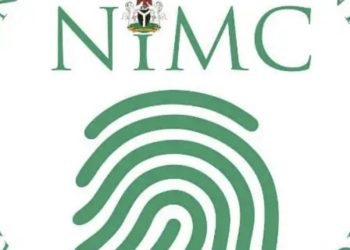…Launches Green Book, Pediatric Drug Regulations, and Scan-to-Verify Track System
By Nkechi Eze
In its continuing drive to safeguard public health and strengthen Nigeria’s pharmaceutical regulatory landscape, the National Agency for Food and Drug Administration and Control (NAFDAC) has taken another decisive step toward eliminating counterfeit medicines and promoting drug safety through digital innovation and policy reform.
Over the years, the proliferation of fake and substandard medicines has posed grave risks to citizens’ health, undermined public confidence in healthcare delivery, and endangered lives, particularly among vulnerable populations such as children. Recognizing these threats, NAFDAC has intensified its regulatory oversight, adopting a multi-pronged approach that combines technology, stakeholder engagement, and rigorous enforcement of standards.
The latest milestone in this reform trajectory is the introduction of three transformative initiatives: the NAFDAC Green Book, the Pediatric Drug Regulations, and the Scan-to-Verify Track and Trace System. These initiatives, launched at a stakeholder workshop in Abuja, mark a significant leap forward in the agency’s commitment to transparency, accountability, and the protection of public health.
At the event, NAFDAC officials unveiled the new systems, highlighting their potential to reshape Nigeria’s medicine regulation and combat the menace of counterfeit products.
Speaking during the workshop, Dr. Gbenga Fajemirokun, Special Assistant to the Director General of NAFDAC, explained that the Green Book serves as a comprehensive, user-friendly database containing all products duly registered by the agency. He described it as a vital resource for healthcare professionals, pharmacists, manufacturers, and other stakeholders seeking to authenticate products before administration to patients.
According to him, “What the Green Book is about is to make sure that every product registered by the agency is contained in it. It serves as a reliable reference for stakeholders in the healthcare space to confirm that a product is authentic and safe for use.”
He added that NAFDAC has taken the innovation further by integrating a Scan-to-Verify feature, which allows consumers and healthcare providers to instantly confirm a product’s authenticity through a simple mobile scan before purchase. “Once you are trying to purchase that product, you can do a simple scan to make sure it is authentic so that the recipient will know it is a product they can take,” Dr. Fajemirokun said. “We believe that together, we can build a country devoid of counterfeit and fake medicines, a country where the health of our people is truly secured.”
The workshop also spotlighted the Pediatric Drug Regulations, underscoring the importance of ensuring that all drug products designed for children are safe, effective, and of the highest quality. Dr. Fajemirokun emphasized that the pediatric population is “a particularly unique group” because children are not mature enough to express complaints about the medications they receive. “We must ensure that every product designed for a child is safe, effective, and of good quality,” he stated.
Representing the Director General of NAFDAC, Dr. Rengar Patendrobu, Director of the North Central Zone, commended the agency’s leadership for the reforms and introduced his team of state coordinators, describing them as “my hands and legs” who will drive the implementation of these innovations at the grassroots level. The coordinators from Plateau, Benue, Kwara, Niger, Kogi, and Nasarawa States, he noted, play vital roles in ensuring compliance and effective monitoring.
Highlighting the objectives of the two-day workshop, Dr. Patendrobu said it was designed to ensure participants become well-informed about the latest developments in drug product regulation, particularly regarding pediatric drug combinations. He added that the forum would enhance understanding of the Green Book, familiarize participants with the Pharmaceutical Distribution Regulations 2024, and introduce them to the functionalities of the Scan-to-Verify app for efficient medicine tracking within the supply chain.
He explained that the Green Book, accessible as a web-based app, is not only an information portal but also an interactive platform for stakeholders. “Our Green Book is special because apart from providing information, you can also report Key Performance Indicators (KPIs) and view data associated with the generics of products,” he said.
In her goodwill message, Pharmacist Bimami Nusilat, Deputy Director with the Directorate of Narcotics and Controlled Substances, applauded NAFDAC’s ongoing efforts, describing the launch as “long overdue and highly commendable.”
She observed that while the agency has achieved remarkable progress, counterfeit medicines remain a persistent national challenge that demands stronger legal and regulatory frameworks. “The issue of counterfeit medicines in our country is overwhelming, and although much has been done, more still needs to be put in place. We must strengthen our laws so that there are stringent sanctions for people who import or distribute counterfeit products,” she said.
Pharmacist Nusilat also urged participants to act as change agents by cascading the lessons from the workshop to their respective communities. “It is for us to take the message back, spread it, and ensure that the information reaches everyone. That way, we can reduce counterfeiting to the barest minimum,” she noted.
The event concluded with renewed commitments from stakeholders to collaborate closely with NAFDAC in sustaining medicine safety, promoting public awareness, and leveraging technology to secure Nigeria’s pharmaceutical supply chain.
Among those present were NAFDAC state coordinators Pharmacist Philip Redon (Benue), Mr. Ikechukwu Okoye (Niger), Pharmacist Nathan Nadabo (Kwara), Pharmacist James Tswedu (Nasarawa), and Pharmacist Emmanuel Angale (Kogi) as well as representatives from professional associations, the media, and other key stakeholders in the health and pharmaceutical sectors.

















